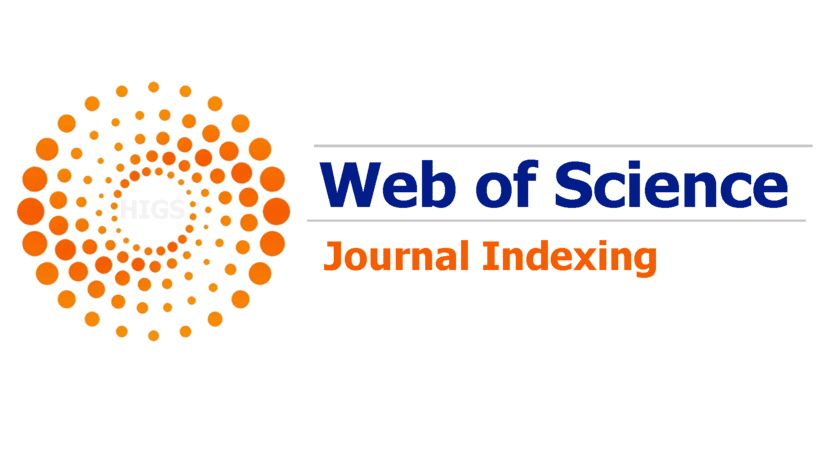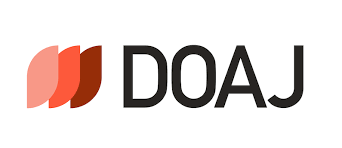Geographic information system as a tool for assessing ponds and the potential for environmental impact caused by fish farming
DOI:
https://doi.org/10.20950/10.20950/1678-2305/bip.2022.48.e695Abstract
The hydrographic basin of Arroio Marreco (Paraná State) concentrates a productive chain of fish farming and great intensification of tilapia farming. In this study, we aimed to monitor the quality of effluent water and organic and inorganic elements released by fish farming in ponds, using geomorphological and land-use and occupation data. The Terrain Analysis Using Digital Elevation Models, Digital Elevation Model software was used to delimit watersheds in the software Quantum geographic information system version 3.6.3. A total of 1,457 production units (water slides) were identified across the study area. This represented an occupied area of 160.2 ha. Analyzing the sub-basins, it was found that High Marreco is the sub-basin with the most developed logistical chain. Low Marreco does not yet have an integration of its fish farming with the region’s logistics chain. Medium Marreco does not have fish farming as its main activity, only using it to reuse inputs from other agricultural activities. There is a large input of nutrients from aquaculture in all the sub-basins. To reduce them, it is recommended to implement decantation and/or reuse of wastewater systems. The results of this study show how important it is to know the dynamics of nutrients in the fish farms and the physical characteristics of the drainage basin to determine the support capacity of the environment, so as not to allow licenses that promote impacts above the self-cleaning capacity of the courses water.
References
Barroso, R.M. 2018. Diagnóstico da cadeia de valor da tilapicultura no Brasil. Brasília: Embrapa. 181p.
BCB í Banco Central do Brasil. 2021. Available at: https://www.bcb.gov.br/ Accessed: Feb. 06, 2021.
Boscolo, W.R.; Feiden, A. 2007. Industrialização de tilápias. Toledo: GFM Gráfica e Editora. 200p.
Bhujel, R.C. 2013. On-farm feed management practices for Nile tilapia (Oreochromis niloticus) in Thailand. In: Hasan, M.R.; New, M.B. (eds.) On-farm feeding and feed management in aquaculture. FAO Fisheries and Aquaculture Technical Paper. Rome: FAO. p.159-189.
Brasil, 2020. Resolução SEDEST Nº 14, de 05 de março de 2020. Estabelece normas e critérios para o licenciamento ambiental de Empreendimentos e Atividades de aquicultura e maricultura. Curitiba, 6 de março 2020.
Chidichima, A.C.; Feiden, A.; Signor, A. 2018. Industrialização de tilápias: processos e métodos de transformação, desafios e perspectiva do setor. Beau Bassin: Novas Edições Acadêmicas. 89p.
Coldebella, A.; Godoy, A.C.; Gentelini, A.; Piana, P.A.; Coldebella, P.; Boscolo, W.R.; Feiden, A. 2020. Nitrogen and phosphorus dynamics in Nile tilapia farming in excavated rearing ponds. Research, Society and Development, 9(11): e1319119699. https://doi.org/10.33448/rsd-v9i11.9699
Conley, D.J.; Paerl, H.W.; Howarth, R.W.; Boesch, D.F.; Seitzinger, S.P.; Havens, K.E.; Lancelot, C.; Likens, G.E. 2009. Controlling eutrophication: nitrogen and phosphorus. Science, 323(5917):1014-1015. https://doi.org/10.1126/science.116775
Correll, D.L. 1998. The role of phosphorus in the eutrophication of receiving waters: a review. Journal of Environmental Quality, Madison. 27: 261-266.
Cyrino, J.E.P.; Bicudo, A.J.A.; Sado, R.Y.; Borghesi, R.; Dairiki, E.J.K. 2010. A piscicultura e o ambiente: o uso de alimentos ambientalmente corretos em piscicultura. Revista Brasileira de Zootecnia. 39: 68-87. https://doi.org/10.1590/S1516-35982010001300009
David, F.S.; Proença, D.C.; Valenti, W.C. 2017. Phosphorus budget in integrated multitrophic aquaculture systems with nile tilapia, Oreochromis niloticus, and Amazon River prawn, Macrobrachium amazonicum. Journal of the World Aquaculture Society, 48(3): 402-414. https://doi.org/10.1111/jwas.12404
Edwards, P. 2015. Aquaculture environment interactions: past, present, and likely future trends. Aquaculture, 445: 2-14. https://doi.org/10.1016/j.aquaculture.2015.02.001
EMBRAPA í Empresa Brasileira de Pesquisa Agropecuária. 2006. Sistema Brasileiro de classificação de Solos. 2a ed. Rio de Janeiro: Embrapa Solos.
Escher, F.; Wilkinson, J. 2019. A economia política do complexo Soja-Carne Brasil-China. Revista de Economia e Sociologia Rural [online], 57(4): 656-678. https://doi.org/10.1590/1806-9479.2019.191017
Feiden, A.; Ramos, M.J.; Chidichima, A.C.; Schmidt, C.M.; Fiorese, M.L.; Coldebella, A. 2018. The tilapia production chain in western Paraná: an analysis of the formation of a local productive arrangement. Redes, 23(2): 238-263. https://doi.org/10.17058/redes.v23i2.8992
Francisco, H.R.; Fabrício Corrêia, A.; Feiden, A. 2019. Classification of areas suitable for fish farming using geotechnology and multi-criteria analysis, ISPRS. International Journal of Geo-Information, 8(9): 394. https://doi.org/10.3390/ijgi8090394
Francisco, H.R.; Coldebella, A.; Corrêia, A.F. & Feiden, A. 2020. Análise espacial de eventos pontuais para estimar o potencial produtivo da tilápia do Nilo (Oreochromis niloticus). Research, Society and Development, 9(9): e855998038. https://doi.org/10.33448/rsd-v9i9.8038
Franco, C.; Cí¢mara, S.F.; Parente, R.C. 2017. Networks, R&D Projects and subsidiary behavior in a host country. Brazilian Administration Review, 14(1): 1-21. https://doi.org/10.1590/1807-7692bar2017160093
FRITZSONS, E.; MANTOVANI, L.E.; AGUIAR, A.V. 2008. Relação entre altitude e temperatura: uma contribuição ao zoneamento climático no estado do Paraná. Revista de Estudos Ambientais, 10(1): 49-64. http://doi.org/10.7867/1983-1501.2008v10n1p49-64
Georgin, J.; Oliveira, G.A.; Rosa, A.L. 2015. Estudo comparativo de índices morfométricos relacionado com cheias nas bacias hidrográficas do alto Jacuí e Vacacaí í Vacacaí Mirim í RS. Revista Eletrônica em Gestão, Educação e Tecnologia Ambiental, Santa Maria, 19(2): 1357-1364. http://doi.org/105902/2236117016834
Hossain, M.S.; Chowdhury, S.R.; Das, N.G.; Rahaman, M.M. 2007. Multi-criteria evaluation approach to GIS-based land-suitability classification for tilapia farming in Bangladesh. Aquaculture International, 15: 425-443. https://doi.org/10.1007/s10499-007-9109
Imberger, J. 1994. Transport processes in lakes: a review. In: Margalef, R. (ed.) Limnology Now: A Paradigm of Planetary Problems. Elsevier: Amsterdam. p. 99-193
IBGE í Instituto Brasileiro de Geografia e Estatística. 2004. Mapa de vegetação do Brasil (1:5.000.000). Available at: https://geoftp.ibge.gov.br/informacoes_ambientais/vegetacao/mapas/brasil/vegetacao.pdf Accessed: Abr 18, 2021.
IBGE í Instituto Brasileiro de Geografia e Estastística. 2021. Produção da Pecuária Municipal. Tabela 3940 í Produção da aquicultura, por tipo de produto. Available at: https://www.ibge.gov.br/estatisticas Accessed: Mar. 14, 2022.
IAT í Instituto Água e Terra. 2020. Série Histórica. Available at: <https://www.iat.pr.gov.br/Pagina/Mapas-e-Dados-Espaciais> Accessed: Set. 10, 2020.
Lambers, H.; Raven, J.A.; Shaver, G.R.; Smith, S.E. 2008. Plant nutrient-acquisition strategies change with soil age. Trends in Ecology & Evolution, 23(2): 95-103. https://doi.org/10.1016/j.tree.2007.10.008
Lari, S.Z.; Khan, N.A.; Gandhi, K.N.; Meshram, T.S.; Thacker, N.P. 2014. Comparison of pesticide residues in surface water and ground water of agriculture intensive areas. Journal of Environmental Health Science & Engineering, 12(1): 11. http://doi.org/10.1186/2052-336X-12-11
Little, D.; Muir, J. 1987. A guide to integrated warm water aquaculture. Stirling: University of Stirling Institute of Aquaculture.
Macedo, C.F.; Sipaúba-Tavares, L.H. 2010. Eutrofização e qualidade da água na piscicultura: consequências e recomendações. Boletim do Instituto de Pesca, (36): 149-163.
Maranhão, T.C.F. 2013. Licenciamento ambiental no Estado do Paraná. In: Feiden, A.; Signor, A.; Boscolo, W.R. Contextualização legislativa aquícola e pesqueira. Universidade Estadual do Oeste do Paraná: Paraná, p.187-230.
Mcdowell, R.W.; Cox, N.; Daughney, C.J.; Wheeler, D.; Moreau, M. 2015. A national assessment of the potential linkage between soil, and surface and groundwater concentrations of phosphorus. JAWRA Journal of the American Water Resources Association, 51(4): 992-1002. https://doi.org/10.1111/1752-1688.12337
Ni, Z., Wang, S., 2015. Historical accumulation and environmental risk of nitrogen and phosphorus in sediments of Erhai Lake, Southwest China. Ecological Engineering, (79): 42-53. https://doi.org/10.1016/j.ecoleng.2015.03.005
Lira, K.C.S.; Francisco, H.R.; Feiden, A. 2022. Classificação de fragilidade ambiental em bacia hidrográfica usando lógica Fuzzy e método AHP. Sociedade & Natureza, 34(1): e62872. https://doi.org/10.14393/sn-v34-2022-62872
Patel, A.B.; Yakupitiyage, A. 2003. Mixed feeding schedules in semi-intensive pond culture of Nile tilapia, Oreochromis niloticus, L.: is it necessary to have two diets of differing protein contents? Aquaculture Research, 34(14): 1343-1352. https://doi.org/10.1046/j.1365-2109.2003.00957.x
Pillay, T.V.R., 2007. References and further reading in aquaculture and the environment. 2a ed. Oxford: Blackwell Publishing Ltd, 188p.
Ploeg, J.D.V.D.; Renting, H.; Brunori, G.; Knickel, K.; Mannion, J.; Marsden, T.; Roest, K.D.; Sevilla-Guzmán, E.; Ventura, F. 2000. Rural development: from practices and policies towards theory. Sociologia Ruralis, Netherlands, 40(4): 391-408. https://doi.org/10.1111/1467-9523.00156
Rezende, P.S.; Marques, D.V.; Oliveira, L.A. 2017. Construção de modelo no QGIS e utilização do método de processo analítico hierárquico í AHP para mapeamento de riscos í inundação na área urbana de Paracatu í MG. Caminhos de Geografia, 18(61): 1-18. https://doi.org/10.14393/RCG186101
Salam, A.M.; Ross, L.G. 2000. Optimizing sites selection for development of shrimp (Penaeus monodon) and mud crab (Scylla Scylla serrata) culture in Southwestern Bangladesh. Aquaculture, 17p.
Schiemer, F.; Keckeis, H.; Reckendorfer, W.; Winkler, G. 2001. The "Inshore Retention Concept†and its significance for large rivers. Archiv fur Hydrobiologie, 135(12): 509-516. https://doi.org/10.1127/lr/12/2001/509
SEAB í Secretaria de Estado da Agricultura e do Abastecimento. 2017. Departamento de Economia Rural. Gráficos municipais referentes ao valor bruto da produção rural 2017. [online] URL: <https://www.agricultura.pr.gov.br/vbp> Accessed: May 20, 2021.
Santos, L.J.C.; Oka-Fiori, C.; Canali, N.E.; Fiori, A.P.; Silveira, C.T.; Silva, J.M.F.; Ross, J.L. 2006. Mapeamento Geomorfológico do Estado do Paraná. Revista Brasileira de Geomorfologia, 7(2): 03-12. https://doi.org/10.20502/rbg.v7i2.74
Veiga, J.E. 2011. Desenvolvimento sustentável: o desafio do século XXI. 3ª ed. Rio de Janeiro: Garamond. 220p.
Downloads
Published
Issue
Section
License
Copyright (c) 2022 Boletim do Instituto de Pesca

This work is licensed under a Creative Commons Attribution 4.0 International License.










